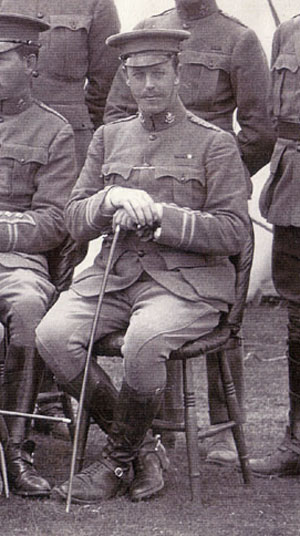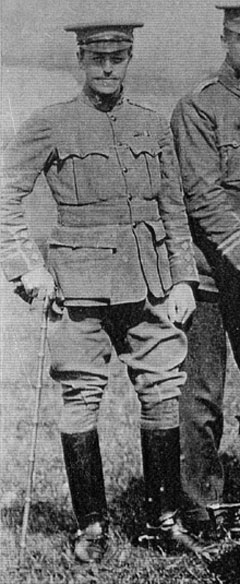Major Sir John Reid Smiley, Bt

John Reid Smiley was born on 28 October 1876 at Gallowhill, Paisley, Scotland, son of thread manufacturer Hugh Houston Smiley and his wife Elizabeth Anne Smiley (nee Kerr).
Educated at Eton College, Smiley joined the 6th Dragoon Guards (Carabiniers) militia on 13 January 1897 and two years later received a regular commission in that regiment as a second lieutenant. In November that year he was promoted to lieutenant, and on 18 December 1901 to captain.
Smiley served with 6th Dragoon Guards in the Boer War, returning to England in 1902 due to ill health. In 1903 when warned to prepare for embarkation for India, he resigned his commission in order to remain home and help his elderly father manage “his various affairs”.
He joined the North of Ireland Imperial Yeomanry as a captain on 17 July 1903, commanding A Squadron (Belfast), from 1905 until his resignation on 17 August 1907.
On 3 March 1909 Smiley succeeded to the title of 2nd Baronet Smiley of Drumalis, Larne, Co. Antrim and Gallowhill, Paisley, Renfrewshire.
On the outbreak of war he rejoined the 6th Dragoon Guards, serving in the Special Reserve. He arrived in France on 3 June 1917, attached XVIII Corps as a Staff Lieutenant. However in August he moved to the Royal Garrison Artillery for duty as horsemaster.
Following four months in England on sick leave he returned to France at the end of August 1918, joining the 88th Brigade, Royal Field Artillery, 19th Division, for duty with the artillery horse lines as horsemaster.
He left France for England in December 1918 for transfer to the Home Establishment “on compassionate grounds”.
Smiley was demobilized on 11 July 1919, and relinquished his commission on 1 April the following year. At the time he asked that, given his long service, he might be granted a higher retired rank than captain. As a result he was given the honorary rank of major.
He died on 13 April 1930 at Bayonne in France.

Images show Smiley with officers of the North of Ireland Imperial Yeomanry in 1905 and 1904.
